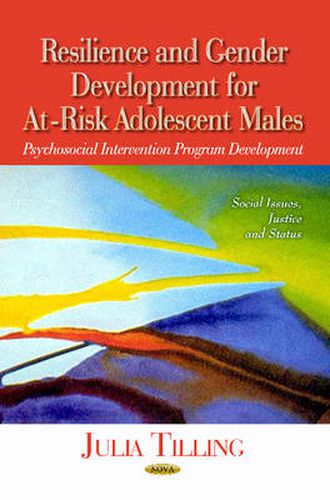Readings Newsletter
Become a Readings Member to make your shopping experience even easier.
Sign in or sign up for free!
You’re not far away from qualifying for FREE standard shipping within Australia
You’ve qualified for FREE standard shipping within Australia
The cart is loading…






This book will address the need for gender issues and the discourses of power to be explored within resilience frameworks to achieve successful outcomes for at-risk males in intervention programs. Due to the western valorisation of traditional masculinities, the backlash politics debate internationally constrains challenges to the existing gender order within intervention programs. The discussion will deal with the notion of hegemonic masculinities and how boys with behaviour problems act out traditional masculinities to gain a sense of male power. It will focus on the notion of at-riskness, which defines these boys as the new victims of accepted social values and does not address the issues of how men victimise other men from different ethnic, class, and sexual preference minority groups, through violent and aggressive tactics. For these boys, exploring the interplay of hegemonic masculinities within society will enable them to move into connecting protective processes / factors within intervention programs and the community. The book makes suggestions for the design and implementation of future intervention / preventative programs that will integrate gender construction and resilient protective processes / factors.
$9.00 standard shipping within Australia
FREE standard shipping within Australia for orders over $100.00
Express & International shipping calculated at checkout
This book will address the need for gender issues and the discourses of power to be explored within resilience frameworks to achieve successful outcomes for at-risk males in intervention programs. Due to the western valorisation of traditional masculinities, the backlash politics debate internationally constrains challenges to the existing gender order within intervention programs. The discussion will deal with the notion of hegemonic masculinities and how boys with behaviour problems act out traditional masculinities to gain a sense of male power. It will focus on the notion of at-riskness, which defines these boys as the new victims of accepted social values and does not address the issues of how men victimise other men from different ethnic, class, and sexual preference minority groups, through violent and aggressive tactics. For these boys, exploring the interplay of hegemonic masculinities within society will enable them to move into connecting protective processes / factors within intervention programs and the community. The book makes suggestions for the design and implementation of future intervention / preventative programs that will integrate gender construction and resilient protective processes / factors.